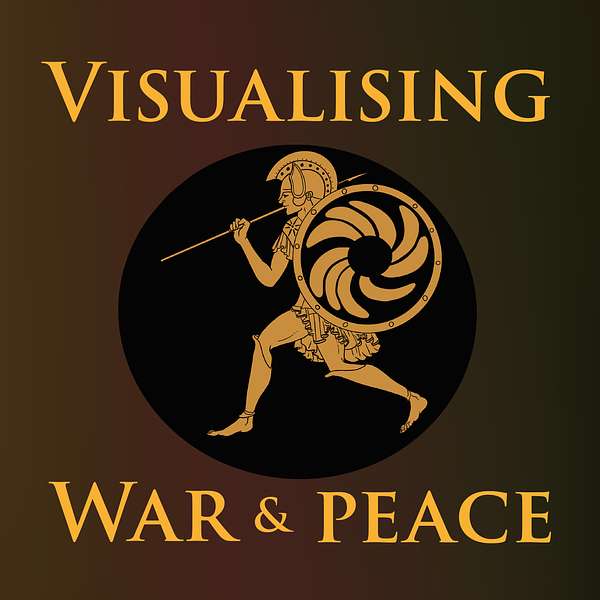
Visualising War and Peace
How do war stories work? And what do they do to us? Join University of St Andrews historian Alice König and colleagues as they explore how war and peace get presented in art, text, film and music. With the help of expert guests, they unpick conflict stories from all sorts of different periods and places. And they ask how the tales we tell and the pictures we paint of peace and war influence us as individuals and shape the societies we live in.
Visualising War and Peace
The Art of Peace with Teresa Ó Brádaigh Bean, Lydia Cole and Azadeh Sobout
In this week's episode, Alice interviews three researchers - Teresa Ó Brádaigh Bean, Lydia Cole, and Azadeh Sobout - who are involved in the Art of Peace project based at the Universities of Manchester and Durham. Led by Oliver Richmond, Stephanie Kappler, and Birte Vogel, this project explores arts-based approaches to peace-making and the role that grassroots-led art projects can play in helping communities process and recover from conflict.
On the podcast, we discussed the many different roles that different forms of artistic practice can play in post-conflict communities, from bringing people together and building bridges between past and present to rights-based activism and peaceful revolution. Lydia, Azadeh and Teresa were all keen to stress that participatory arts programmes can help people 'build better futures', not just process past experiences. Along the way, we discussed the false binary between war and peace that often distorts and simplifies how we visualise both. We talked about the limitations of top-down, colonial-style peace-making initiatives, and the merits of grassroots peace-building from below and attention to micropolitics. We also looked at lots of different examples of 'artivism' - art that embodies and enables activism. Our conversation got us thinking about entrenched habits of visualising 'peace' and the role that different art forms can play in re-visualising both peace and conflict and in visualising new/different/better futures.
Alongside her research, Teresa works for the charity In Place of War, which supports artists and cultural organisations in places of conflict all around the world. Her recent work has focused particularly on creative enterprise, community arts education and arts-based social movements in Colombia, and she is co-editor of a volume coming out soon called ‘The Art of Making Something from Nothing’, which looks at the social impact of arts projects across the Global South.
Lydia is closely connected to the Conflict Textiles project which we talked about on the podcast last week, and she has curated a range of exhibitions in connection with this (called ‘Stitched Voices’ and ‘Threads, War and Conflict’), bringing feminist international relations theory and critical peace and conflict studies together. She is passionate about creative and participatory approaches to peace and conflict studies, and her work for the Art of Peace project has focused particularly on grassroots arts projects in Bosnia and Herzegovina
Azadeh has been leading a research project on the intersection of arts and peace-building in Lebanon, focused particularly on refugee communities from Syria and internally displaced people from within Lebanon itself. She has a particular interest in post-war geographies and narratives of displacement; in how different affected communities present their histories and identities through different artistic media; and how different forms of art can create avenues for peace activism, by helping people work through the complexities of solidarity, responsibility and ethics.
We hope you enjoy the episode. You can find out more about the Art of Peace project on their website, and more information about In Place of War is available here. For a version of our podcast with close captions, please use this link.
For more information about individuals and their projects, please visit the University of St Andrews Visualising War website.
Music composed by Jonathan Young
Sound mixing by Zofia Guertin